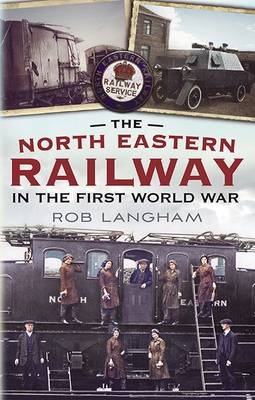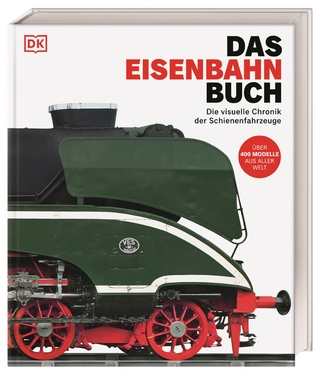
North Eastern Railway in the First World War
Seiten
2015
Fonthill Media Ltd (Verlag)
978-1-78155-455-5 (ISBN)
Fonthill Media Ltd (Verlag)
978-1-78155-455-5 (ISBN)
This book tells the story of the men and machines of the North Eastern Railway during the Great War. 18,339 members of staff, 34 per cent of the workforce, were released for military service-2,236 of those men died, and 300 received military decorations. There was even a North Eastern Railway Pals Battalion of the Northumberland Fusiliers.
The North Eastern Railway underwent extreme change after the outbreak of war in August 1914. Within months, the company raised its own battalion of men and was the only railway company to do so. The NER also set to work adapting to the changes and requirements the war would bring. Not only would there be a drop in regular passenger traffic levels and increase in freight, transporting both war material and troops, but the workshops formerly used to build locomotives were turned over to making weapons of war. In December 1914, the railway came under attack from the Imperial German Navy, causing damage to the NER's infrastructure and killing several of its men. As the war went on, locomotives and rolling stock were sent to France to help with the enormous logistics required for operations on the Western Front. The planned opening of an electrified railway line for freight went ahead with a brand new fleet of powerful electric locomotives, adding to the company's portfolio of electrification with the electrified Tyneside passenger line and Newcastle Quayside.N
ER land was used to build an enormous munitions factory at Darlington and the unprecedented use of women in the work place meant traditionally male-only roles were increasingly seeing women take over and freeing men for military service.Overseas, men of the NER that joined the forces served with honour, but many were not to come home. The North Eastern Railway in the First World War tells the story of one railway's war, of how it continued to operate and adapt, and the men and women who served with the company or left to fight for the country's freedom.
The North Eastern Railway underwent extreme change after the outbreak of war in August 1914. Within months, the company raised its own battalion of men and was the only railway company to do so. The NER also set to work adapting to the changes and requirements the war would bring. Not only would there be a drop in regular passenger traffic levels and increase in freight, transporting both war material and troops, but the workshops formerly used to build locomotives were turned over to making weapons of war. In December 1914, the railway came under attack from the Imperial German Navy, causing damage to the NER's infrastructure and killing several of its men. As the war went on, locomotives and rolling stock were sent to France to help with the enormous logistics required for operations on the Western Front. The planned opening of an electrified railway line for freight went ahead with a brand new fleet of powerful electric locomotives, adding to the company's portfolio of electrification with the electrified Tyneside passenger line and Newcastle Quayside.N
ER land was used to build an enormous munitions factory at Darlington and the unprecedented use of women in the work place meant traditionally male-only roles were increasingly seeing women take over and freeing men for military service.Overseas, men of the NER that joined the forces served with honour, but many were not to come home. The North Eastern Railway in the First World War tells the story of one railway's war, of how it continued to operate and adapt, and the men and women who served with the company or left to fight for the country's freedom.
Rob Langham is a young First World War historian who has been writing magazine articles for numerous titles for several years. As well as conducting research on topics as varied as First World War railways to pubs bombed by Zeppelins, he also travels to sites related to the war both in the UK and abroad to get a feel for the events that happened there nearly a century before. Langham currently works in the aviation industry and has also appeared as an extra in several First World War related pieces including the 2008 Hovis advert and the film Private Peaceful (2012).
| Erscheint lt. Verlag | 15.7.2015 |
|---|---|
| Verlagsort | Toadsmoor Road |
| Sprache | englisch |
| Themenwelt | Natur / Technik ► Fahrzeuge / Flugzeuge / Schiffe ► Schienenfahrzeuge |
| ISBN-10 | 1-78155-455-2 / 1781554552 |
| ISBN-13 | 978-1-78155-455-5 / 9781781554555 |
| Zustand | Neuware |
| Informationen gemäß Produktsicherheitsverordnung (GPSR) | |
| Haben Sie eine Frage zum Produkt? |
Mehr entdecken
aus dem Bereich
aus dem Bereich
Das Beste aus Stadt und Land.
Buch | Softcover (2024)
VUD Medien (Verlag)
12,00 €
Buch | Softcover (2024)
hidden europe publications (Verlag)
26,15 €
die visuelle Chronik der Schienenfahrzeuge
Buch | Hardcover (2024)
DK Verlag Dorling Kindersley
34,95 €


